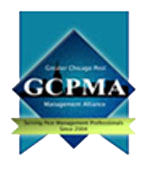It’s back to school time and you know what that means…head lice! Every year we get calls from exasperated parents who want us to come out and “spray” for head lice. Unfortunately, that won’t do any good. Here is a run-down on the ‘who, what, where and why’ of these little invaders.
These pests are transferred from person to person through contact or sharing of certain items such as combs, brushes, hats, clothing, etc. If you have ever watched school kids play together you can see this behavior all the time. Since head lice can’t fly or jump, they spread from person to person by these methods. Teach your kids to avoid these behaviors to keep from bringing this problem home to you.
August through November is when activity is at the highest level. During these months head checks should be done weekly. Remember, lice need a human host to survive. They can’t live off the body for more than 24 hours so they don’t really infest furniture and floor coverings or vehicles. It’s just not a good environment for them – that’s why “spraying” doesn’t work.
Head lice eggs are called nits. Look for tiny white, white, oval cylinders in your child’s hair, close to the scalp. Nits are glued to the hair shaft, normally behind the ears and along the back of the neck. You will need a special louse comb to remove them. Start at the root and comb to the tip. Do this to the entire head several times until no more nits appear on the comb. Note: a regular plastic comb won’t do the trick.
Head lice lay 6-7 eggs per day. Your child could have several dozen living on their head in just a few weeks. This is why weekly inspections are so important. There are over- the- counter products that can be applied to the scalp to help with control but nit removal is the main key to success.
Remember, kids who don’t share personal belongings such as hats, brushes, scarves and combs with other classmates, and have weekly inspections performed, are less likely to experience head lice during the year.







We are here to take your
call 24 hours a day
6271 W Howard Street
Niles, IL 60714
(847) 610-8323
Illinois License 051-024800
Copyright 2024, Eco Tech Inc. All rights reserved.